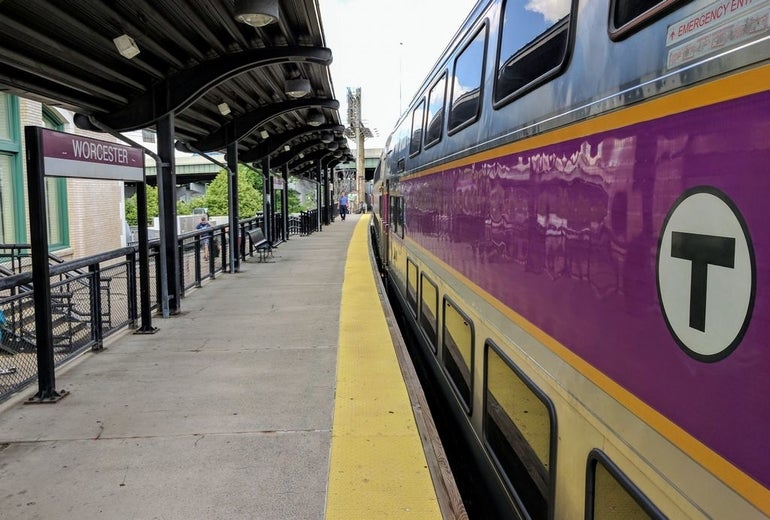The MBTA has penciled in $7 million in new parking revenues for next year. Now they’re figuring out who will pay.
Under an idea discussed Monday, commuter rail riders who park at high-volume lots could see prices go up while those who face little competition for parking spaces might see reduced daily parking rates.
Transportation Secretary Stephanie Pollack suggested rates of $3, $4 and $5 depending on the lot.
The T last raised parking fees in 2008 with an across-the-board $1 hike. Parking at commuter rail lots now generally costs $4 per day while parking at most rapid transit stations costs $5 to $7. T fares, which are paid by those using T lots, have also increased significantly over the past decade.
Pushing parking rates higher could affect the number of people who park and ride the rail system.
If the T raised parking rates by $1 across the board, that would boost parking revenues by $6.2 million but also cut into ridership resulting in $3.1 million less in fares, according to a staff analysis.
While the T estimated an across-the-board $1 hike on parking prices would result in a 417,150 reduction in parking space occupancy, a T spokesman did not have an estimate for the number of people who would stop riding the T if prices jumped up by that amount. Spokesman Joe Pesaturo did not say whether there would be any public meetings on the parking policy.
Brian Shortsleeve, a member of the MBTA Fiscal and Management Control Board, said a flat across-the-board increase “doesn’t make sense.”
Among the menu of staff options are premium and reserved spaces, weekend rates, hourly rates, and rates linked to the availability of spaces. The aim would be to encourage riders to park at under-used lots while squeezing more revenue out of lots that are already in-demand.
MBTA Control Board Chairman Joe Aiello agreed with Shortsleeve that an across-the-board rate hike is a bad idea while stressing that any changes should be simple enough to be easily understood.
“They don’t want a one-price-fits-all approach, but they also don’t want it so complicated that it is hard for our customers to understand,” Pollack told reporters, summing up the viewpoints of the control board. She said, “Now the staff will be able to come back with some specific ideas.”
The T’s revenue chief, Evan Rowe, said the board would receive a draft parking policy in two weeks.
“I don’t think we’re in a place to say what the final changes or final prices are going to be at this point,” Rowe told reporters. Parking facilities on the Red Line – which cost more than standard commuter rail lots – are among the most congested on the system, according to Rowe.
Further changes to the T’s parking prices could be implemented when the agency implements new automated fare collection technology. Last year the T approved a 13-year $723.3 million contract for a joint venture of Cubic Corp. and the John Laing Group to develop new payment technology. When the project is completed in May 2020, riders will have a wider variety of ways to pay for their trip and the T could have more flexibility in pricing, according to transit officials.
While T parking facilities are only used by 10 percent of rapid transit riders, about half of the commuter rail’s customers start their MBTA trip at a T parking lot. The agency has 44,369 spaces, most of which are for the commuter rail and ferry, and there were $50.7 million in gross parking revenues in fiscal 2017. The T netted $21.1 million in parking revenues.
Republic Parking System manages the MBTA’s parking facilities, and the agency is working with the firm Nelson/Nygaard on its new parking policy.

